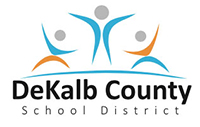Overview
 The Individuals with Disabilities Education Act of 2004 (IDEA) and the Every Student Succeeds Act (ESSA) require that states ensure all students, including those with significant cognitive disabilities, are provided access to state academic content standards and given the opportunity to demonstrate achievement of knowledge, concepts and skills inherent to those standards by participating in the state’s assessment program. The U.S. Department of Education defines alternate achievement standards as establishing performance expectations that differ in complexity from grade-level achievement standards. The standards assessed must be aligned with the approved state’s content standards, give access to these content standards, and promote the highest achievement levels possible for the individual student. This ensures that students who participate in an alternate assessment will receive customized learning provided by the teacher.
The Individuals with Disabilities Education Act of 2004 (IDEA) and the Every Student Succeeds Act (ESSA) require that states ensure all students, including those with significant cognitive disabilities, are provided access to state academic content standards and given the opportunity to demonstrate achievement of knowledge, concepts and skills inherent to those standards by participating in the state’s assessment program. The U.S. Department of Education defines alternate achievement standards as establishing performance expectations that differ in complexity from grade-level achievement standards. The standards assessed must be aligned with the approved state’s content standards, give access to these content standards, and promote the highest achievement levels possible for the individual student. This ensures that students who participate in an alternate assessment will receive customized learning provided by the teacher.
The GAA 2.0 is designed to ensure that students with significant cognitive disabilities are provided the opportunity to illustrate the knowledge, concepts and skills obtained through classroom instruction.
GAA 2.0 Participants
For students with disabilities, each student’s Individualized Education Program (IEP) team works together to decide how the student will participate in Georgia’s student assessment program. If the student’s IEP team determines that a student cannot meaningfully access the Georgia Milestones Assessment System, even with maximum appropriate accommodations, then the student must participate in the GAA 2.0.
The grades and courses assigned are detailed in the chart below.
| Elementary/Middle | High School (Grade 11) |
|---|---|
Grades 5
|
|
Grades 8
|
|
Grades 3, 4, 6 and 7
|
For more information regarding student eligibility, please contact your local school.
GAA 2.0 Assessment Summary
 The Georgia Alternate Assessment is designed to provide meaningful information about classroom instruction and help to identify a student’s areas of strength and improvement through a summative assessment. Unlike the original GAA, GAA 2.0 is no longer a portfolio-based assessment; therefore, it will measure a student’s achievement and not their progress.
The Georgia Alternate Assessment is designed to provide meaningful information about classroom instruction and help to identify a student’s areas of strength and improvement through a summative assessment. Unlike the original GAA, GAA 2.0 is no longer a portfolio-based assessment; therefore, it will measure a student’s achievement and not their progress.
The GAA 2.0 will include standardized items with multiple access points. The intent is to reduce the teacher’s burden related to selecting or developing tasks, as with the portfolio based assessment; bring greater standardization to the administration; improve scoring reliability; and introduce an online task submission system.
Test examiners will assess each student individually, in an untimed setting. Most students will be able to use the same communication mode on the GAA 2.0 test as they would use in the classroom setting.
The Georgia Alternate Assessment will be administered March 22 – April 30, 2021.
GAA 2.0 Achievement Level Descriptors
The GAA 2.0 assesses students’ understanding of the state’s alternate academic content standards, or Extended Content Standards, which align to the grade-level content standards. Alignment refers to the connection of the skill through which students will demonstrate what they know and can do, to the content standard expectations for general education students in a given grade. Students with significant cognitive disabilities may need to learn these skills differently, in smaller segments, with fewer identified components, at a slower pace, and/or learn skills that would provide access to the standard.
The following four achievement levels generally describe students’ understanding of the essential knowledge and skills outlined in Georgia’s Extended Content Standards.
More detailed and content-specific concepts and skills are provided for each grade and content area in the Achievement Level Descriptors (ALDs). ALDs are narrative descriptions of the knowledge and skills expected at each of the four achievement levels, based on the Extended Content Standards. The ALDs were developed for each grade level and content area by committees of Georgia educators.
ALDs show a progression of knowledge and skills for which students must demonstrate competency across the achievement levels. It is important to understand that a student should demonstrate mastery of the knowledge and skills within his/her achievement level as well as all content and skills in any achievement levels that precede his/her own, if any. For example, a Level 3 learner should also possess the knowledge and skills of a Level 2 learner and a Level 1 learner.
ALDs for Parents are available below and are intended to summarize the concepts and skills for each grade and content area to support parents’ understanding of their child’s performance.
GAA 2.0 Parent Resources
GAA 2.0 Contact Information
For more information regarding the administration of the Georgia Alternate Assessment in the DeKalb County School District, please contact:
| Allison Scott Director Assessment Administration |
Nicole Harper Coordinator II Assessment Administration |
|---|---|
| 678.676.0300 | 678.676.0141 |
| Allison_Q_Scott@dekalbschoolsga.org | Nicole_Harper@dekalbschoolsga.org |



